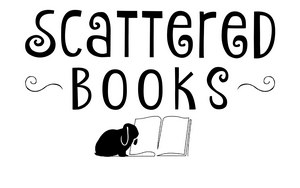 Book Summary: The Alchemist
Book Summary: The Alchemist
(10th grade)
Full Book Summary
Paulo Coelho’s enchanting novel in the eclectic “magical realism” category is dazzling in many ways. The style reads simply yet contains powerful emotions, interesting and deep characters, plots twists and inspiring wisdom. An Andalusian shepherd boy named Santiago travels from his homeland in Spain to the Egyptian desert in search of a treasure buried in the Pyramids. He is both a simple sheep herder and an ambitious explorer. He follows his dreams, literally, a well as “signs” from his environment. Our main character is thoughtful beyond his years but also a child subject to being impressionable. Along the way he meets a Gypsy woman, a man who calls himself king (is he really a king? who should he believe?), a man who claims to be an alchemist (is he really an alchemist who can turn metal to gold?) and then a real alchemist who doesn’t brag at all. Each character points Santiago in the direction of his quest. No one knows what the treasure is, or if Santiago will be able to surmount the obstacles along the way. He hits dead ends, someone steals his money, he trusts incorrectly, he gets captured in the desert, etc… but amazing things happen as well and the plot always moves forward. Tides turn. He arguably changes his own destiny with his actions. Santiago must wrestle with what he is told vs. what is real. But what starts out as a journey to find worldly goods turns into a discovery of the treasure found within – the fine line between reality and the spiritual. He moves from hopeless to hopeful and back again throughout the story. He even meets Fatima, love at first sight, in a massive desert oasis. His quest, coupled with the magical realism genre might leave the reader with questions. Did Santiago truly summon the sandstorm that led to his escape in the desert or was it a coincidence? Did he really feel Fatima’s kiss on his cheek at the end, or was it just a sense or longing to fulfill his promise to return to her? Lush, evocative, and full of awesome quotes about being, the story of Santiago is a real (and slightly magical) representation of the transforming power of our dreams, whether real or imagined, people in our lives and the importance of listening to our hearts.
Questions to consider while reading:
Questions to ask yourself while reading “The Alchemist” Feel free to incorporate these thought starters into your Summer Reading summaries:
1 – Where did you think the treasure was while you were reading? Did you think it existed? Would you follow visions and innuendos form others to find your “treasure”?
2 – Did you like the style of writing? Why or why not? Did you like the line between reality and the supernatural?
3 – Did you notice the circular theme? Santiago ended up where he started o find the treasure? Do you think he will return to Fatima and complete another circle?
Online Book Reviews of The Alchemist:
The Guardian: For anyone who reads not only to escape reality but also to understand reality, The Alchemist can offer the best of both worlds. The events of the novel sit just on the borderline of miraculous and the ambience is simply just not that of our humdrum teenage world. However, The Alchemist also supplies insight and inspiration that extends beyond Santiago’s Sahara and into all lives, whether young, old, or teenage. The Alchemist may not be your regular YA fiction book, but it most definitely still deserves a place on your bookshelf!
Publishers Weekly: The story has the comic charm, dramatic tension and psychological intensity of a fairy tale, but it’s full of specific wisdom as well, about becoming self-empowered, overcoming depression, and believing in dreams. The cumulative effect is like hearing a wonderful bedtime story from an inspirational psychiatrist.


 Book Summary: The Alchemist
Book Summary: The Alchemist